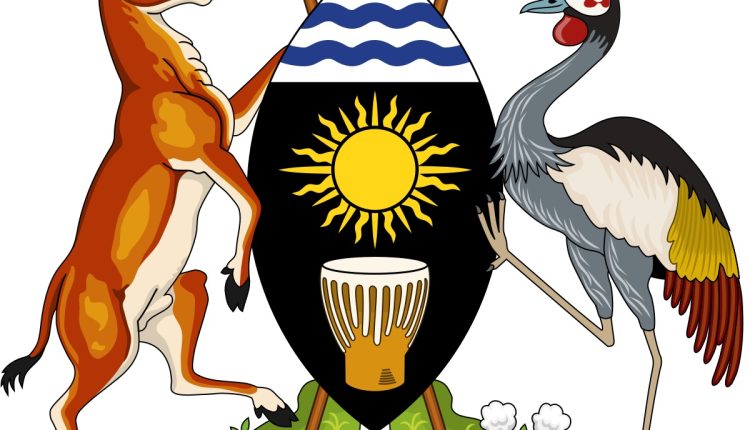Uganda Rallies Global Solidarity Against Oesophageal Cancer: Science, Innovation, and Diplomacy at the Heart of Progress
In a demonstration of Uganda’s growing commitment to collaborative Healthcare Diplomacy, the Uganda Embassy in Washington D.C. in partnership with the Uganda Cancer Institute (UCI), and key stakeholders including AFRECC, Olympus, and Kyabiirwa Surgical Center, hosted a high-level esophageal Cancer Symposium at Four Points by Sheraton, Kampala. Under the theme “Leveraging Science, Innovation and Technology to Address the Burden of Esophageal Cancer in Sub-Saharan Africa,” the event marked the culmination of a four-day health-focused agenda that began with specialized surgical training at Kyabiirwa Surgical Center in Jinja. Over 50 patients received treatment during the training phase, a tangible outcome underscoring the importance of applied science in addressing real-world health burdens.
The symposium was not merely an academic exchange it was a convergence of minds from the health sector, diplomatic corps, academia, media, and private manufacturers, drawn together by a shared sense of responsibility. Beyond policy, the symposium made room for stories personal accounts of survivors, caregivers, and practitioners working in low-resource settings. It is this blend of policy, practice, and lived experience, which gave the event its distinct character and diplomatic weight. The event also served as a platform for discussing the broader socio-economic and cultural implications of non-communicable diseases. Presenters explored how public perceptions, behavior change, and even commercial industries such as tobacco and alcohol influence cancer rates. With emphasis on building resilient health systems, speakers called for a multi-sectoral approach that combines regulation, education, and innovation.
In line with her Mission’s mandate to promote Science and Technology transfer under the four ATMS, Uganda’s Ambassador to the United States, Robie Kakonge, delivered remarks that reflected a nuanced understanding of global diplomacy in the health sector. “Cancer is not just a medical challenge it’s a deeply human one,” she said. “Each diagnosis is a story of hope, resilience, and the quiet strength of families and communities.” She underlined the critical role of technology in bridging geographic divides, emphasizing that embassies today function as both diplomatic posts and development facilitators. “With limited resources and high expectations, we walk a fine line. But strategic partnerships and shared responsibility remain our greatest assets,” she added.
Amb. Kakonge’s remarks also recognized the essential roles of countries like Japan which has worked closely with the Uganda Cancer Institute and the United States, not as donors, but as co-creators of a shared future. Her appeal to “think beyond borders and budgets” framed cancer as a global development issue an approach that resonated strongly with international health experts and funders in attendance. Speaking with both humility and resolve, His Excellency Takuya Sasayama, the Ambassador of Japan to Uganda, who was also in attendance, reflected on the evolving collaboration between Japan and Uganda, which he described as “a journey of mutual respect and long-term investment in people.” The ambassador pointed to areas of growth, including health cooperation, coffee exports, and cultural exchange. He also acknowledged Japan’s contribution to Uganda’s infrastructure through projects like the donation of ambulances and medical equipment efforts he described as acts of friendship, not charity.
“Our collaboration is not a project. It is a relationship,” he remarked, inviting partners to co-create solutions that transcend national interests and reflect a common vision for health, sustainability, and innovation. In his keynote address delivered on behalf of the Hon. Minister of Health, Dr. Charles Olaro, Director General of Health Services, echoed Uganda’s commitment to early detection, public education, and regional health equity. He emphasized the importance of HPV vaccination for girls under 14, and he urged stronger efforts to diagnose cancers at an earlier stage. “When we delay, we pay,” he stated, referencing the escalating costs both human and economic of late diagnosis. Dr. Olaro also pointed to growing mental health concerns and the need for integrated, community-based approaches in both cancer and psychosocial care.
Dr. Jackson Orem, Executive Director of UCI, described the symposium as “a convergence of science, innovation, and diplomacy.” He stressed that Uganda’s cancer burden cannot be tackled in isolation. “We must draw on global partnerships not only for funding but for the co-creation of knowledge. Innovation must be localized, and science must be democratized,” he said. His remarks were received with deep resonance by the international delegations, many of whom had travelled to Kampala to affirm their support. As the curtains fall on this milestone gathering, one thing is clear: Uganda is not just hosting conversations it is shaping them. With its eyes firmly on the future and its feet grounded in regional realities, the country is emerging as a credible voice in the global dialogue on cancer care, resilience, and shared humanity. In a world grappling with health inequities, Uganda’s call is simple yet profound: “Let us heal together.”
Distributed by APO Group on behalf of The Republic of Uganda – Ministry of Foreign Affairs.



